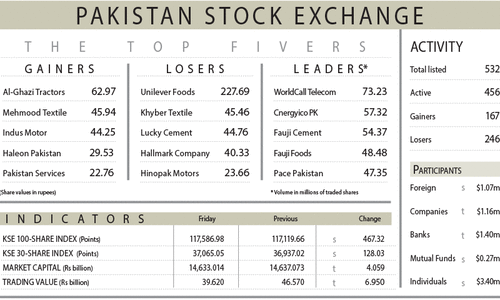KARACHI, Sept 15: Stakeholders in the rice trade project conflicting views over the issue of minimum export price (MEP). While some rice exporters and wholesalers demand immediate removal of MEP on basmati rice, the growers oppose the demand.
Basmati farmers feel that the MEP on basmati should stay at $1,500 for Super and $1,300 for normal basmati as they argued that Pakistan had a comparative edge in this product and can earn increased foreign exchange. The country needs to export more of basmati to cash the opportunity, they said.
President Basmati Growers Association (BGA), Chaudhry Hamid Malhi told Dawn from Lahore that some exporters and traders had now join hands to deprive farmers of a fair paddy price.
Basmati prices shot up to $2,000 per ton after the imposition of MEP by the government in April-May this year. This step revealed the difference in prices and foreign exchange earnings, which multiplied for the same quantity due to increase in average unit price (AUP) from $667 to $1,500 per ton.
It is also important to note that not only the AUP showed a 125per cent increase the exports rose also in quantity by 47 per cent from 140,764 tons in May-June 2007 to 207,909 tons in May-June 2008.
He said that this step added an increase of nearly $211 million over the earnings of the preceding the year.
Hamid said that the issue today was that of manipulated low prices of basmati rice, which did not correspond to the rates at which it is being exported. The dip in prices just before the arrival of fresh crop is an age old tactic to deprive the farmer of the fruits of escalated global prices. He added that even during the two months of July and August the prices of basmati fetched an average price of $1,511 per ton.
The BGA chief said basmati growers had paid nearly double the price on a bag of urea, which rose from Rs525 to Rs900 and DAP rose from Rs1,000 to Rs3,200 per bag. The rates of high speed diesel have shot up from Rs32 to Rs65 per liter. The rate of mark up has also risen from eight to 16 per cent. Electricity prices are on the rise and so are the cost of living and the labour. The traders’ bid to deprive the basmati farmers is unethical and against all norms of fair play.
He said that it was also important to note that while the wholesale prices reduced to Rs70 per kg, the consumer continues to be fleeced at above Rs100 per kg. So the trader continues to fleece the consumer on one side and deprive the true price to the producing farmer on the other.
He urged the government to ensure Rs2,000 per 40-kg of the basmati to the farmers.













































Dear visitor, the comments section is undergoing an overhaul and will return soon.